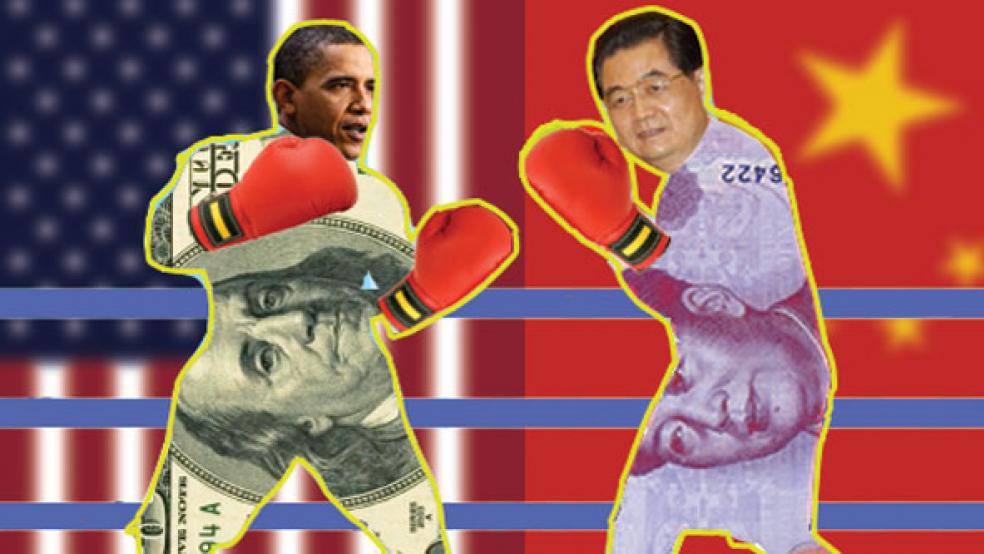Amid the recession and record federal budget deficits, a seemingly counterintuitive trend is under way: The United States is becoming less dependent on foreign creditors like China. While overall borrowing has increased to offset a deficit that reached $1.4 trillion last year, the government is increasingly turning to the U.S. private sector to underwrite its debt rather than foreign investors, according to experts.
Several key factors have led to this important but little noticed shift: A historic recession left consumers and businesses strapped for cash as credit tightened. As Americans weaned themselves off credit, they — and by extension the federal government — became less dependent on foreign creditors than they were just a few years ago. That's because as the U.S. savings rate began to rise late last year to 4.8 percent, individuals and corporations were investing more in government securities and enabling the government to reduce its dependence on foreign investors.
In short, the perceived leverage that countries like China, Japan, the United Kingdom and Brazil have over the U.S. economy as major creditors is dissipating. "Our need to borrow from abroad has diminished dramatically,” said Nicholas Lardy, a China scholar at the Peterson Institute for International Economics. (The Institute is funded by Peter G. Peterson, the founder of The Fiscal Times.)
Financial flows between the United States and big Asian economies, notably China, have become the contentious centerpiece of Sino-American relations. The Chinese government artificially depresses the value of its currency against the U.S. dollar, making Chinese goods cheaper here and raising charges that its action is costing thousands of U.S. manufacturing jobs.
The Obama administration has been reluctant to penalize China, in part because of its status as one of the two largest foreign holders of Treasury securities, along with Japan. The United States also is seeking China's support for multilateral action to curtail Iran's nuclear program, among other foreign policy goals in China's sphere of influence. Late last week, following a visit to Beijing by Treasury Secretary Timothy Geithner, the Chinese government signaled it will announce soon that it will allow its currency to strengthen slightly and to vary more from day to day. China's exports have been bolstered by its policy of keeping its currency, known as the renminbi or yuan, pegged at a nearly fixed rate to the dollar.
Government statistics show a marked downturn over the last two years in the cash the United States takes in from foreigners to finance its debts. In the fourth quarter of 2009, the net amount of cash moving into the United States amounted to $45.7 billion, a huge drop from the $150.5 billion in the last three months of 2007. “As a nation, our dependence on foreign loans is way down,” the Nobel Prize-winning economist Paul Krugman recently wrote in his blog. “The surging deficit is, in effect, being domestically financed.”
Stephen Jen, managing director for macroeconomics and currencies at BlueGold Capital Management, a London-based hedge fund, said the trend stands a good chance of continuing because Americans are unlikely to resume the borrowing binge that led to the financial crisis and recession. In the boom years before the crisis, American consumers drove the inflow of foreign money by borrowing and spending so that consumer spending, as a percentage of gross domestic product, rose to as high as 75 percent. That was much higher than the 67 percent that is the historical average.
Meanwhile, China actually reduced some of its stash of U.S. securities in the last half of 2009, and its total now stands at $899 billion. Some saw this as the Chinese adjusting its holdings to try to promote domestic growth, while for others it raised the prospect that China cannot be counted on to finance U.S. spending forever. Indeed, the declining significance of Chinese lending to western economies may become a defining feature of the global economy as the effects of the recession slowly ebb, economists said.





